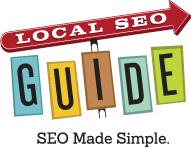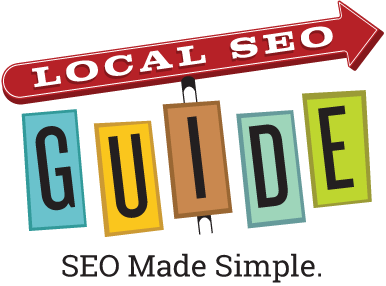Last week saw the launch of Google Place Pages which Google described as “a webpage for every place in the world, organizing all the relevant information about it.” Nothing like a modest goal to scare the crap out of everybody else in local search.
According to Greg Sterling Google was not going to be indexing Place Pages. There is no crawlable architecture to speak of – at least nothing I could find thus far – so one would think that even if they were indexed, these pages would not be able to rank too well as of yet. And Google is currently blocking Googlebot from crawling the /places/ directory in its robots.txt file so the only way these are going to get indexed and ranked is if they generate a lot of links – of course it doesn’t take much to rank well for most business name searches as they are relatively uncontested (except for the 10,000 directories competing for the term of course).
I suspect the robots.txt move was a way for GOOG to keep the local search industry calm for the time being. The Place Pages will have readable URLs such as the one for this Buffalo Jeweler, so it’s pretty safe to assume that there is a SEO plan in their somewhere. After all if Google really didn’t want these indexed they would have put “noindex” tags on each of them.
As you can see from the following query site:maps.google.com inurl:places +intitle:”- Google Maps”, there are a few of these URLs showing up in the index already and as these pages roll out and they start to get inbound links I have little doubt that these suckers will start to rank well for searches for these businesses. The Place Page for Zurich Hauptbahnof is already on page one, but then again that page was linked to directly from GOOG’s page about the launch.
You may recall that Google launched something called Knol last year that was supposed to be its answer to Wikipedia. The idea was that people would create their own Knol pages and that at some point these pages, which were supposed to be “units of knowledge”, would start to get really good and perhaps would start to show up at the top of the results similar to how Wikipedia dominates. The problem as far as I could tell is that not that many people knew about Knol and/or the Knols that have been created I guess are not as good in general as other pages on the Web about similar info, therefore they don’t attract as many links and the algo cannot rank them well.
I don’t think this is going to be the case with Place Pages. These things are going to be connected directly off of Google Maps so plenty of people will be exposed to them. And given the fairly uncompelling state of most business profile pages on local search sites, if these pages start to look like they have a lot of great data on them, they are going to attract links (not to mention the fact that SEO types will be linking to them like crazy to push them up to the top of the results). The key will be whether or not these pages can generate links with the business’ name in the anchor text. Because these pages are blocked in robots.txt they will likely need some help from anchor text to rank for specific searches.
So what does this mean for the local search experience in the future? I am guessing it’s pretty likely that we will start to see Place Page URLs show up in the 10 pack/local results when GOOG does not know a business’ website URL. This already happens with maps.google URLs so it won’t be a big change and we already see map results show up at the top for business name search results when Google Maps has a page it thinks matches the query like this one for Haps Steakhouse Pleasanton. So maybe it’s not that big a deal?
I think perhaps the biggest change is that Google is going to promote Place Pages more actively than the previous Google Local Business Center (try saying that ten times fast), and as a result more businesses are going to claim their profile and we are going to start to see more of these Place Page URLs in the organic Web results. I could also imagine GOOG tagging a result that links to a business’ website with a “Place Page” link similar to how they sometimes attach a map link to the result.
When the 10 pack was introduced this was a big deal for directories and IYPs as their page one results were now pushed down below the local results. Now it seems pretty likely that over time at least one out of the top ten Web results for a local business name query will be a Google Place Page. So at least one site per local query could lose their page one position they currently enjoy. And if Google decides to introduce Place Page local category or tag pages – ay caramba!
And it wouldn’t be hard to imagine these pages getting tweaked over time to become more conversion-friendly. I wouldn’t be surprised if GOOG comes out with all sorts of widgets you can put on your own page to generate qualified leads, book appointments, buy something, etc. The next thing you know you’ll be creating Adwords campaigns to drive traffic to your Place Page instead of your own website because the conversion rate is so much better.
While I don’t believe it’s in Google’s interests to choke off the traffic to the big yellow pages publishers who are helping bring SMBs online and into Google’s waiting arms, I do believe it’s going to keep getting tougher for those who rely on organic local search traffic to get their fair share.
For those yellow pages publishers who are reading this, if I were you I would ping my SEO guy and ask him to dig out that “crazy SEO ideas to expand share of search” presentation from the last offsite. You know the one you probably ignored . Unless you’re BeyonceYellowPages.com it looks like you’re going to need to start adding some serious crazy to your SEO plan.
Some more posts on Google Place Pages and local seo:
Dev Basu: Are Google Place Pages Being Indexed?
Mike Blumenthal: Where Are Google Place Pages Going? To The Index?
Miriam Ellis: The Powerful Potential of Google Place Pages
Stever: Google Plays Monopoly And Owns Every Place On The Board
TechCrunch: With Google Places, Concerns Rise That Google Just Wants To Link To Its Own Content


7 Response Comments
Well that will certainly add another angle to gaining high SEO for local searches!
Excellent recap of what Google Place pages can mean – will be sharing this with my network. Thanks!
Hi Andrew,
Great article. While a lot of people and “local” search engines should be worried, they have brought this problem upon themselves. Google has been faithful to the premise that people doing a search with a local qualifier are actually trying to find a local business (bricks-and-mortar store) that meets their search parameters.
Unfortunately, Local.com, the YellowPages.com (including the many YP varietals) and most search category portals (i.e. The Knot for weddings) have compromised local search by “selling” zip codes and towns/cities to online marketers under the premise that “they are serving local markets.” It’s not the same! In fact, it is deceptive and comprises “real” search results. I, for one, applaud Google’s efforts to support local business. If Google stands to benefit from this initiative, so much the better.
These other “local” search engines have only themselves to blame since they have insulted the intelligence of their search audience and the “local” businesses they theoretically represent in their desparate quest for more advertising revenue. Gosh, they might even have to so something that is relevant to search, rather than use their traditional scare techniques to get businesses to advertise on their seriously compromised seach platforms.
Richard W. May
Founding Member of the Stationers Guild
The Google Places Pages “a webpage for every place in the world, organizing all the relevant information about it.” Present interesting possibilities as well as the potential repercussions which you mentioned in a different manner.
I’m trusting that though you “do believe it’s going to keep getting tougher for those who rely on organic local search traffic to get their fair share.” That the proper venues to compensate for the potential lost traffic will be found. For the moment we need to work ahead of this wave that Google is creating. Now there’s an additional thing to watch, study, and learn from and how to implement things to maximize the potential. Will be looking forward to your next post particularly on this thread.
James, not sure what you mean by the “proper venues…”, but if you’re suggesting that there will always be new ways to find qualified traffic (e.g. figuring out how to influence Place Pages) and that those who aggressively go after these new ways will be rewarded, then I agree.
Hi Andrew,
Thanks for taking the time to walk through the ramifications of this Google Places page. I’m new to SEO Local and trying to find creative new ways to get my clients leveraged. You hint that while these pages are not indexed, they still might get some SEO juice. And you mention that they aggregate info from sources all over the web. Might a good tactic be to increase the keywords on these other sites so your Google Places page is more optimized for the future?
I wouldn’t bother Case. At this point it looks like GOOG is noindexing these suckers
It used to be that Google Maps were generally ranked according to proximity to the geographical center of the city searched. However, this is no longer the case.
If you say that these Google Places pages are not indexing the new pages, than I won’t focus too much on it. It certainly sounds interesting to know what they are working on though.